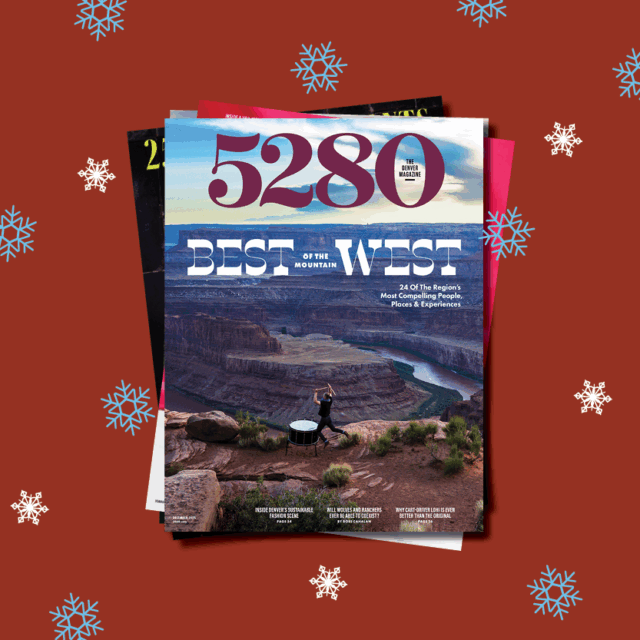The Local newsletter is your free, daily guide to life in Colorado. For locals, by locals.
Editor’s note: Responses have been edited for length and clarity.
You know him as…President of the NAACP Aurora Colorado chapter and director of educational opportunity programs at the University of Colorado Denver.

5280: Why do you want to be mayor?
Omar Montgomery: The city of Aurora is full of opportunity. With that stated, there hasn’t been a lot of people who’ve been able to find that opportunity. As we begin to grow and develop, as we begin to have a lot of industries that are attracted to our city and it also become a tourist destination, I want to make sure those who have not found their opportunity are able to take part in what’s about to happen in the city of Aurora.
If elected, what’s the first thing you’ll do?
Day one, I want to meet with every single City Council member. Because there has been some tension among Council. We can’t get anything done if Council is not together. So, for me, I want to sit down with our Council members and figure out what have been some of the struggles in the past, can we get past that so that we can begin to take care of city business?
What sets you apart from other candidates?
I’m not a politician. I’m an educator. I’ve been in education for over 25 years, I have a master’s in public policy and administration, I’ve never been an elected official, but I’ve always been active in the city of Aurora.
What’s something that voters might not know about you?
I have a dog named Marty, so when we begin to talk about animal rights and the treatment of animals, that’s very important to me.
Aurora is one of the state’s most diverse metros—and it is also home to a federal immigration facility that has been the focus of recent protests. How has that impacted the community?
Everyone is not going to agree on this issue. But if we champion our diversity the way we’ve been doing in the city of Aurora, whether it’s Global Fest, whether it’s more opportunities where we can engage each other in some of these serious discussions and putting politics aside and just having honest discussions, I’m willing to help lead some of those discussions. I’m planning on having my own town hall meetings as mayor, and we can make those some of the topics, so that we can have a safe place to have these discussions without judgment, and without all of the political rhetoric around it. Let’s just have an honest discussion and figure out how the city of Aurora can do better in servicing our immigrant and refugee population and at the same time keep the city safe.
Lightning round: What are your quick thoughts…on growth.
Growth in Aurora is happening—you got about 10,000 rooftops that are about to be built in northeast Aurora. You also have an oil and gas corridor out there. You have people complaining about traffic and public transportation as we begin to grow. Part of that is, we’re going to have to work with RTD to expand public transportation in areas that have sort of been left behind. If we can get more cars off the street and we can get peoples’ trust into public transportation, then we can begin to protect our environment.
…on energy, oil, and gas.
We have an operator’s agreement in place. When the operator’s agreement was put in place it was done without community input and it was done also with the approval of close to three to four hundred wells….I think we also need to have infrastructure within the city that can manage, that can do the inspections, and right now we don’t have that full infrastructure there.
…on affordable housing.
Although our homeless number has dropped…having attainable and affordable housing has become more out of our reach. There’s a lot of things we can do when it comes to affordable housing, and I’m excited that hopefully, if elected as mayor, we can begin to look at some of these ideas and think—I know it’s a cliché—and think outside the box. It doesn’t always have to be Section 8. We do need to work with our housing authority and figure out how do we get more vouchers, how can we get more revenue for them to build more affordable housing for our at-risk populations, but at the same time there are people who don’t fit in those categories who we have to have housing for.








